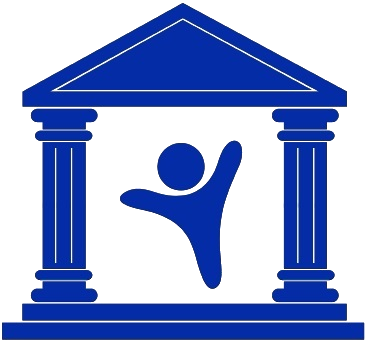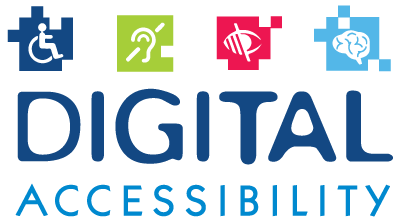
“COME‐IN!” Cooperating for Open Access to Museums – towards a widEr Inclusion
Museums are places where everyone should be able to see and learn about our cultural heritage. However, many museums in Central Europe, encounter difficulties to be accessible for all due to a lack of organisational knowledge and of limited financial resources, both for investments and adequate promotion.
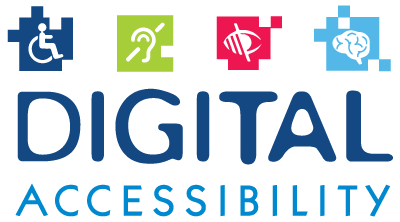
DIGIACESS – ERASMUS+ Certified Digital Accessibility Training project
The project aims to develop specialized digital accessibility training and accessible e-learning platform to improve the knowledge, skills, and competencies of diverse groups of key stakeholders. The training follows web accessibility standards and enables website developers, designers, managers, and others to respond to the needs of visual, auditory, physical, or cognitive disabled, as well as older persons.
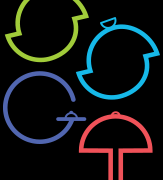
Project FAST
The project aims to develop specialized digital accessibility training and accessible e-learning platform to improve the kFAST (Facilitating Accessibility in Support of Tourism) addresses a service need which is currently a key barrier to accessible travel. Personal Assistant Services (PAS) are often necessary to accessible travelers but expensive to have, primarily because they are controlled by travel agencies and the supply of such professionals is low.

REACH – RE-designing Access to Cultural Heritage for a wider participation in preservation, (re-)use and management of European culture
The REACH project encourges people to engage in culture and cultural heritage (CH) in order to foster creativity and innovation and to empower citizens to face the immense and rapid changes taking place in Europe and beyond. REACH provides a social Platform, a sustainable space for meeting, discussion and collaboration between stakeholders within the field of culture and CH
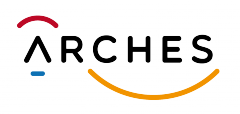
ARCHES – Accessible Resources for Cultural Heritage EcoSystems
With the support of the European Union, ARCHES has brought together disabled people, technology companies, universities and museums. Together, they have developed technological solutions, such as tactile reliefs made with the latest 3D modelling techniques, barrier-free apps and games for smartphones and tablets, together with sign-language avatars are the cutting-edge technologies. The technologies have been co-designed and tested by more than 200 disabled people in Spain, Austria and UK.
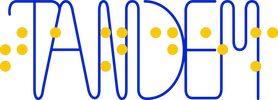
TANDEM – Tools and New Approaches for people with Disabilities -Exploring a Museum
In the 3 years-long TANDEM project, the partners from seven different countries meet to test, develop and share tools and new approaches for people with disabilities to explore museums. The project aims to support better understanding of inclusivity in education and ability to creatively deal with diverse groups of learners with and without disabilities.

AMBAVis (Access to Museums for Blind and Visually Impaired people through 3D technologyisabilities -Exploring a Museum)
Museums constitute an essential part of the European cultural landscape. However, they primarily address the visual senses and blind and visually impaired people are therefore excluded from a wide range of services. However, times are changing innovative 3D technologies and multi-sensory approaches are offering new solutions for blind and visually impaired people, by enabling them to get in touch with exhibits and allowing them to participate museums’ educational programmes. The project AMBAVis aims to be a driving force for the development and the dissemination of tactile and 3D practices in museums, in order to improve cultural access for blind and visually impaired People.

“RICHES” (Renewal Innovation and Change: Heritage and European Society
Bringing cultural heritage and people together in a changing Europe and finding new ways of engaging with heritage in a digital world. Its interdisciplinary team researches the context of change in which European CH is transmitted, its implications for future CH practices and the frameworks (cultural, legal, financial, educational, technical) to be put in place for the benefit of all audiences and communities in the digital age.
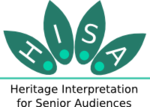
“HISA” (Heritage Interpretation for Senior Audiences)
The main objective of HISA was to enhance the learning experience of seniors beyond 55 years visiting heritage sites, museums and protected areas. The HISA partnership evaluated on-site educational facilities for senior visitors e.g. interpretive media and human interpreters. Partners collected data and feedback in their regions from adult educators and senior learners and shared previously developed good practice. Based on these findings a manual was written and widely disseminated.
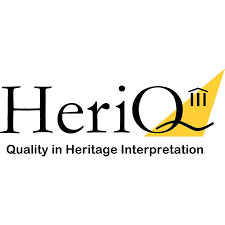
“HeriQ” (Quality in Heritage Interpretation)
It intended to emphasise the ideas of learning for sustainability within heritage interpretation focussing on two aims: To inspire interpreters to act as interpretive agents, setting up networks for heritage interpretation for sustainability and to train and to certify interpretive guides who intend to share their heritage mainly with visitors from abroad.
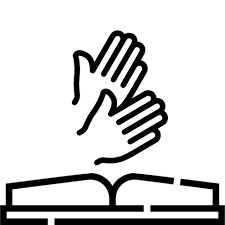
Deaf Museums project
It will develop Open Educational Resources (OER), including an online training course in museum and general entrepreneurial skills for and by Deaf sign language users, to promote, preserve and share the Deaf Heritage. The Deaf Museums project has 2 long term goals: 1. To promote, preserve and share the Deaf Heritage and by doing so: to promote Deaf awareness in the widest sense possible. 2. To improve the employability of Deaf sign language users and the success of Deaf entrepreneurs by providing them with the necessary mindset and skills.

Cultural Relations Platform
It is an EU-funded project that connects cultural practitioners worldwide for dialogue, exchange and co-operation. It also provides expertise to the European Union (EU) in the field of international cultural relations. Develops research into the cultural and creative sectors in countries, facilitates co-operation and networking between cultural practitioners within and outside the EU, provides advice and expertise to EU institutions and EU delegations all over the world, strengthens the capacity of cultural practitioners globally to deliver international cultural relations, through local conferences, workshops and training.

‘The Smell of Art’ (Museo de Olivenza)
The project is part of the sensory marketing area. In this case, the conclusions on the influence of the smell of neuromarketing have been applied to non-profit areas. The purpose of the experiment was to demonstrate if the smell influenced the perceptions, evaluations and behaviors of the visitors, depending on whether or not there was an odor on the route. After the application of various analysis techniques and statistical tools, it has been concluded that the smell directly influences perceptions and evaluations (people who visit scented rooms value them better) and indirectly influences behavior (the -Visitors in the presence of smell present a greater intention to return to the museum, to select it over others and to recommend it to family and friends-as).

INVENT – EUROPEAN INVENTORY OF SOCIETAL VALUES OF CULTURE AS BASIS FOR INCLUSIVE CULTURAL POLICIES
INVENT is a research project funded under the H2020 Programme of the EU. The INVENT project sets out to identify, through research, the cultural and social preconditions required for the strategic goals of the New EU Agenda for Culture to be realized.

ACCEASY, EASY TO READ EASY TO ACCESS
Erasmus+ project to promote cognitive accessibility on European Cultural Heritage. The main results of the project are a data base of cultural concepts on easy-to-read, trainning for professionals on the cultural and tourism sector; and training for professionals and volunteers supporting people with disabilities. Two on-line courses available: Cognitive accesibility of Cultural Heritage MOOC and Accessible Cultural Heritage MOOC. The project has also created a network for sharing good practices and promoting a more inclusive cultural heritage.
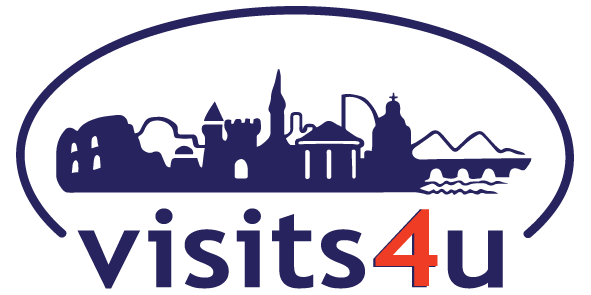
VISITS4U
Developing inclusive tourism provision. 18 month project that will develop and deliver inclusive tourism training and capacity building to improve user experience and sustain inclusive design in tourism.
